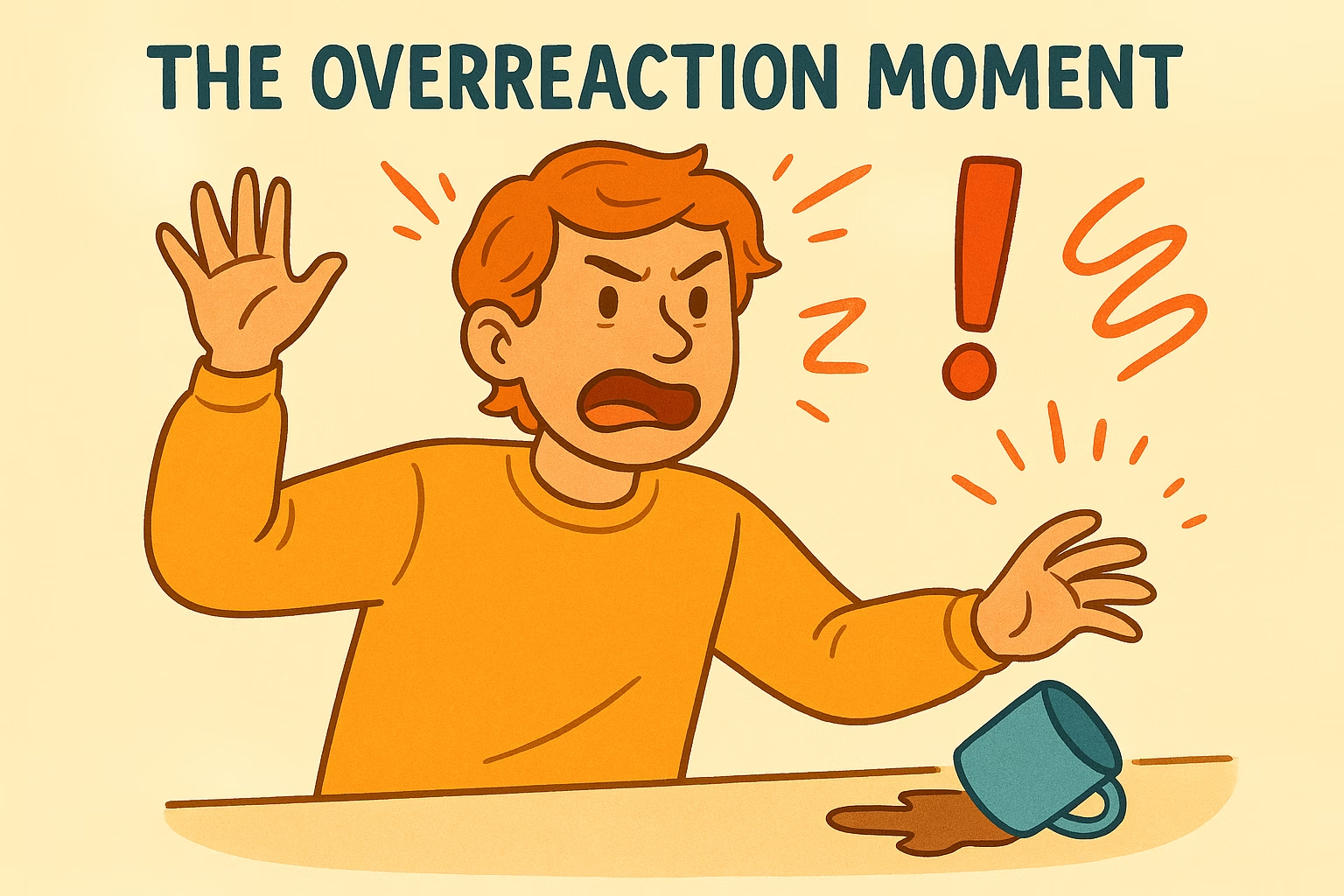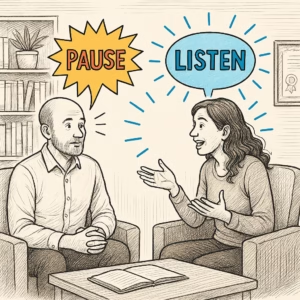Everyone gets upset sometimes. But for many adults with ADHD, emotional reactions can feel bigger, louder, and harder to control. A small disagreement with a partner can spiral into shouting. A colleague’s feedback might sting like deep criticism. A forgotten text can feel like rejection.
This isn’t a character flaw—it’s an executive function challenge. Emotional regulation, like time management or organisation, is a skill that can be harder for ADHD brains to master. With awareness and strategies, it’s possible to manage emotions without losing authenticity or closeness in relationships.
Why It Matters

Emotional regulation is part of the executive functions—the brain’s management system. When this skill is under strain:
- Conflict escalates quickly – Small disagreements can grow into full-blown arguments.
- Relationships feel unstable – Partners, friends, or colleagues may feel “on edge” about reactions.
- Self-esteem dips – After outbursts, many people with ADHD feel guilt or shame.
- Trust erodes – Emotional inconsistency can make others hesitant to share openly.
For deeper context, see Executive Functions and how they connect with relationships and self-management.
Everyday Signs
- Overreacting to small frustrations (traffic, delays, minor disagreements).
- Crying, shouting, or withdrawing more quickly than others expect.
- Feeling emotions intensely in the body (racing heart, clenched jaw, shaky hands).
- Regretting words or actions once the moment passes.
- Struggling to “let go” after conflict—replaying conversations or stewing for hours.
Practical Strategies & Coaching Tips
1. Name It Before It Grows
Practice identifying the emotion as soon as it arises. Saying “I’m feeling overwhelmed” helps externalise it before it takes over.
2. Pause and Reset
Use short “circuit breakers” in conflict: a glass of water, a few deep breaths, or stepping outside for two minutes.
3. Set Agreed Signals
In relationships, agree on a gentle signal (like a hand gesture or keyword) to pause conflict before escalation.
4. Body First, Mind Second
Emotions live in the body. Relaxing shoulders, slowing breathing, or walking around the block often resets the mind faster than “thinking it through.”
5. Reframe After the Storm
Once calm, reflect on the trigger and ask: What did I need in that moment? How can I ask for it next time without overreacting?

Coaching Perspective
ADHD coaching approaches emotional regulation not as “controlling feelings” but as building awareness, tools, and recovery strategies. Clients often learn to:
- Separate the feeling from the reaction.
- Develop self-compassion when emotions run high.
- Practise accountability through reflection, not shame.
When It’s Harder Than Usual
If emotions consistently overwhelm daily life, professional support may be needed. Therapy, ADHD coaching, and sometimes medical treatment can provide deeper scaffolding.
The Takeaway
ADHD doesn’t mean you’re “too emotional.” It means your feelings may run hot, fast, and deep. With strategies, coaching, and supportive relationships, it’s possible to ride those emotional waves without capsizing. Emotional regulation isn’t about suppressing feelings—it’s about expressing them in ways that protect both your wellbeing and your connections.


